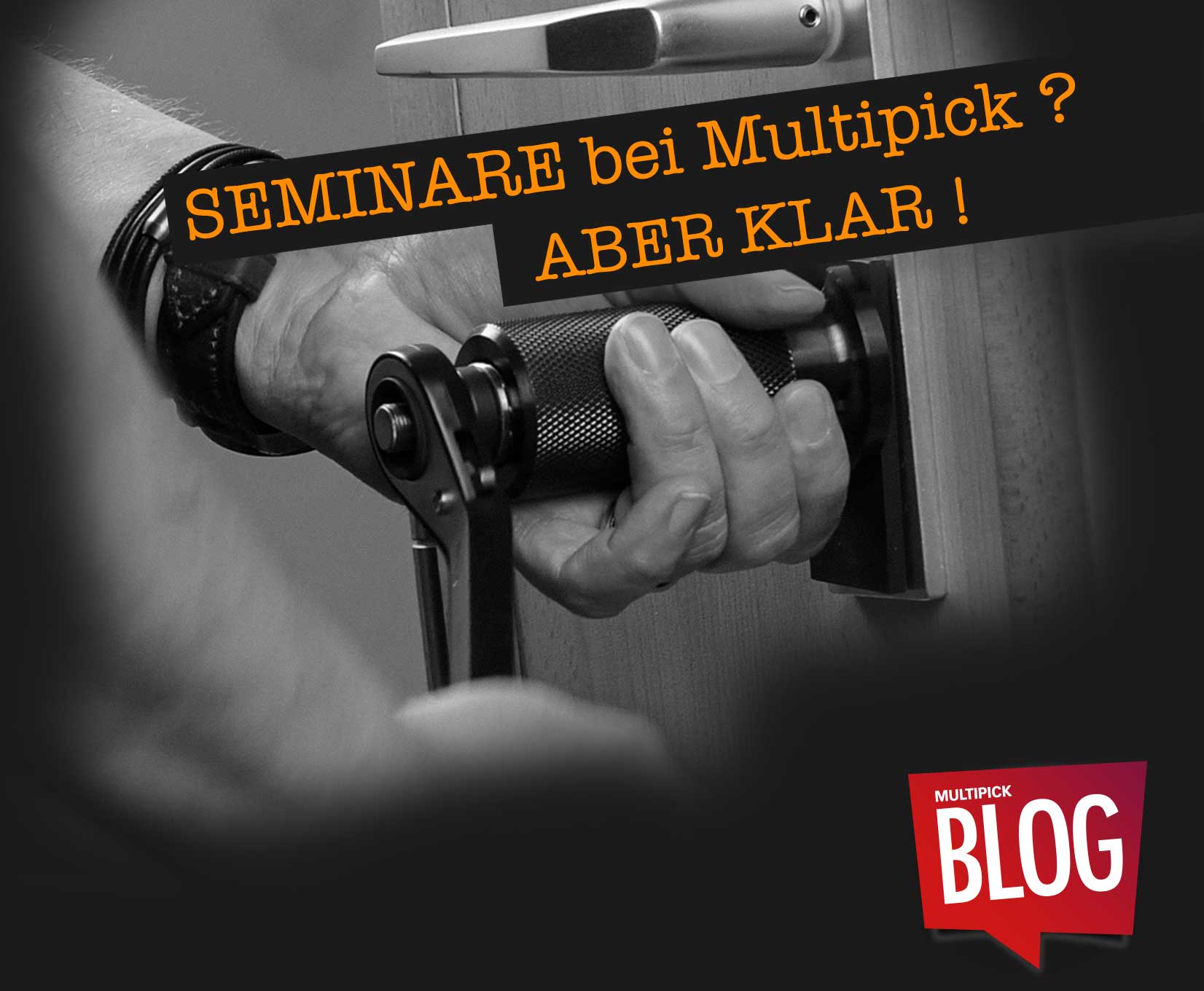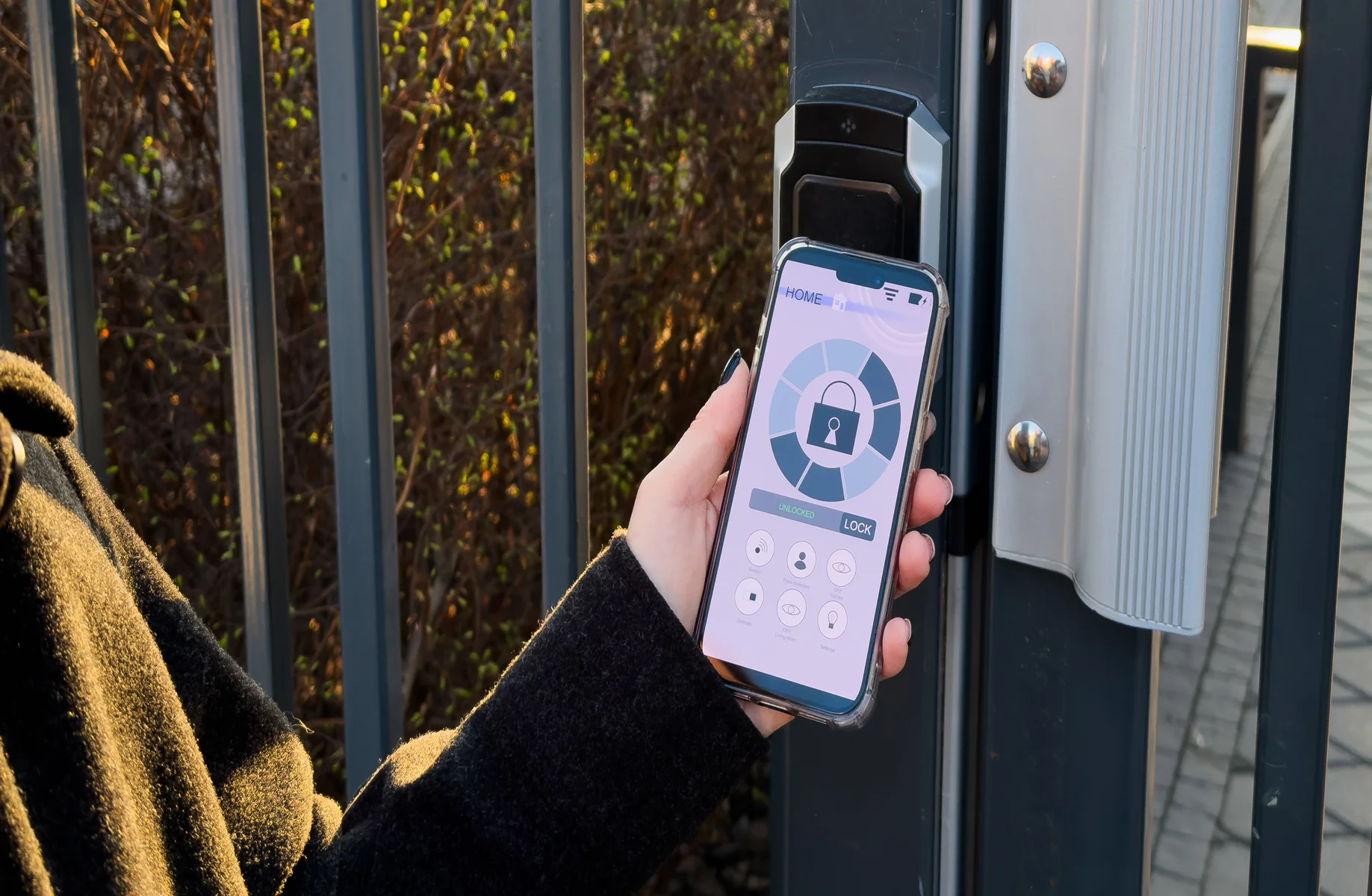
Reading time: 7 minutes / Lars Buchwald / July 1, 2025
Smart Locks: Opportunities and Risks for Locksmith Services
Table of Contents
→ What Smart Locks Really Are – And What They’re Supposed to Do
→ Legal Grey Areas of Digital Access
→ From Keychains to the Cloud – A Cultural Shift in Security
→ Why Locksmiths Don’t Need to Fear Smart Locks
→ The Risks of Smart Technology – From App Failures to Data Breaches
→ When Updates Lock the Door: A Real-Life Observation
→ Hybrid Is the New Normal – Why Analog and Digital Must Work Together
→ Multipick’s Position on Digital Locking Technology
→ Sources and Legal Notes on Smart Lock Usage
A lock that doesn’t need a key? Sounds pretty smart at first. Smart locks make exactly that possible: they unlock doors via app, passcode, fingerprint, or Bluetooth – depending on the system you choose.
What Smart Locks Really Are – And What They Promise
For private homes, there are simple plug-in solutions that can be installed with a bit of DIY skill. But for businesses or landlords, things get more complex – now it’s about user management, time slots, access logs, and remote control. In short: those who used to count keys now count user rights and access codes in the cloud.
From a Legal Perspective: When Door Access Goes Digital
In Germany: Anyone who opens a door needs to know who owns it — and whether they are actually allowed inside. Sounds simple, but things get complicated fast when the rightful owner is on a business trip and the smart lock app only returns error messages. Locksmiths must be able to prove they’re acting on behalf of the authorized person — and that proof can land in a legal gray area when access is temporary or digital.
Across the EU, owning a smart lock is not an issue — but operating one in a legally compliant way can be. The GDPR ensures that access logs, location data, and user management are subject to strict oversight.
In the US? Well — it’s often install first, face lawsuits later. Nationwide regulations? Not really.
Legal sources:
• Unlawful Possession Equivalent to § 858 BG
• Legal Protection for Smart Lock Systems
• Security Updates for Smart Devices
From Keychain to Cloud – More Than a Passing Trend
The good old key had two major advantages: it worked offline — and you could have a copy made if necessary. Today, to get into your own home, you need a decent battery level, Wi-Fi access, and a functioning operating system.
We’re in the middle of a cultural shift. If you open your front door via app, you probably expect the lights to turn on, the coffee machine to start, and Spotify to play your “Home Sweet Home” mix. Security is becoming a comfort feature. And we all know — that’s both a blessing and a curse.
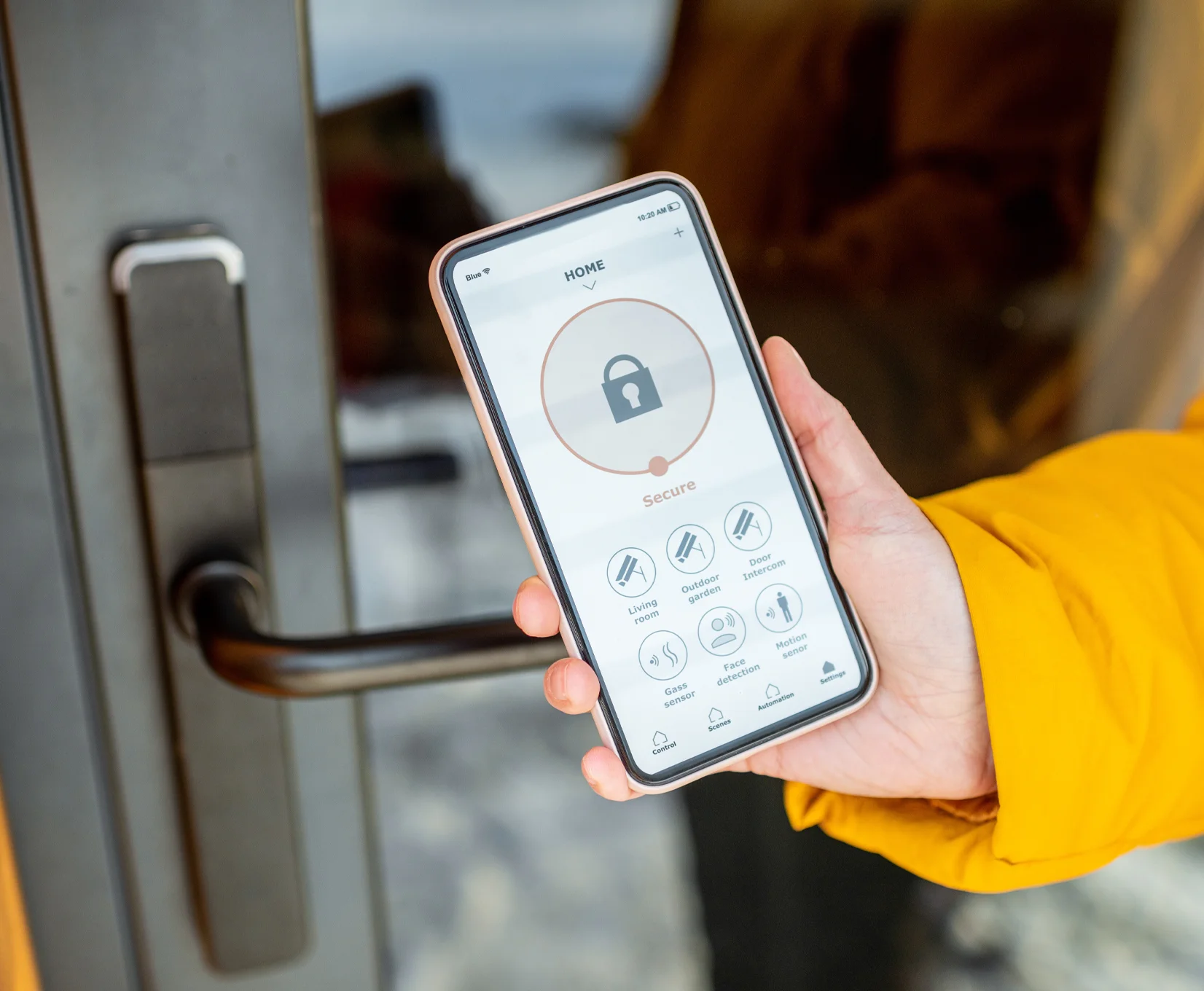
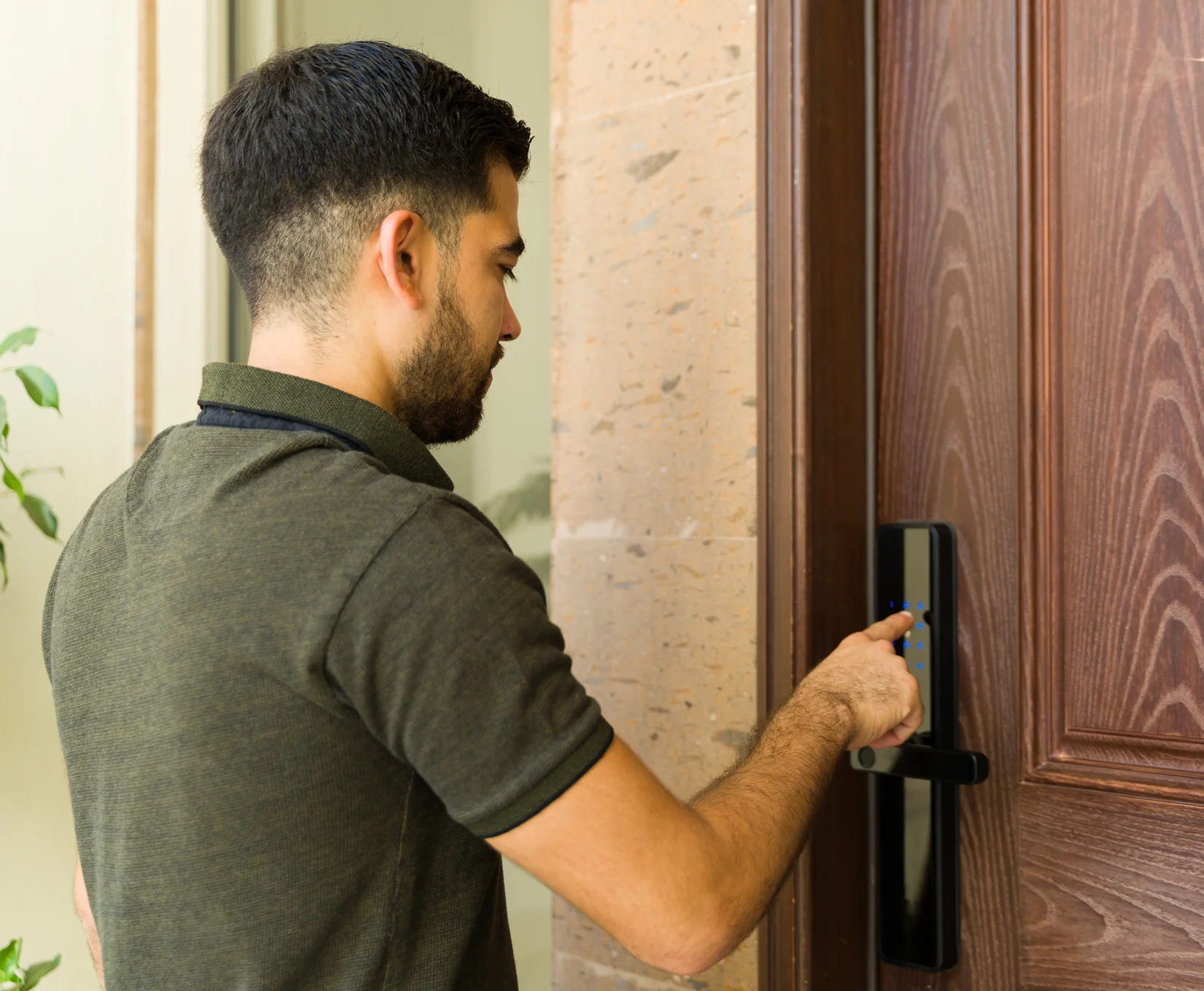
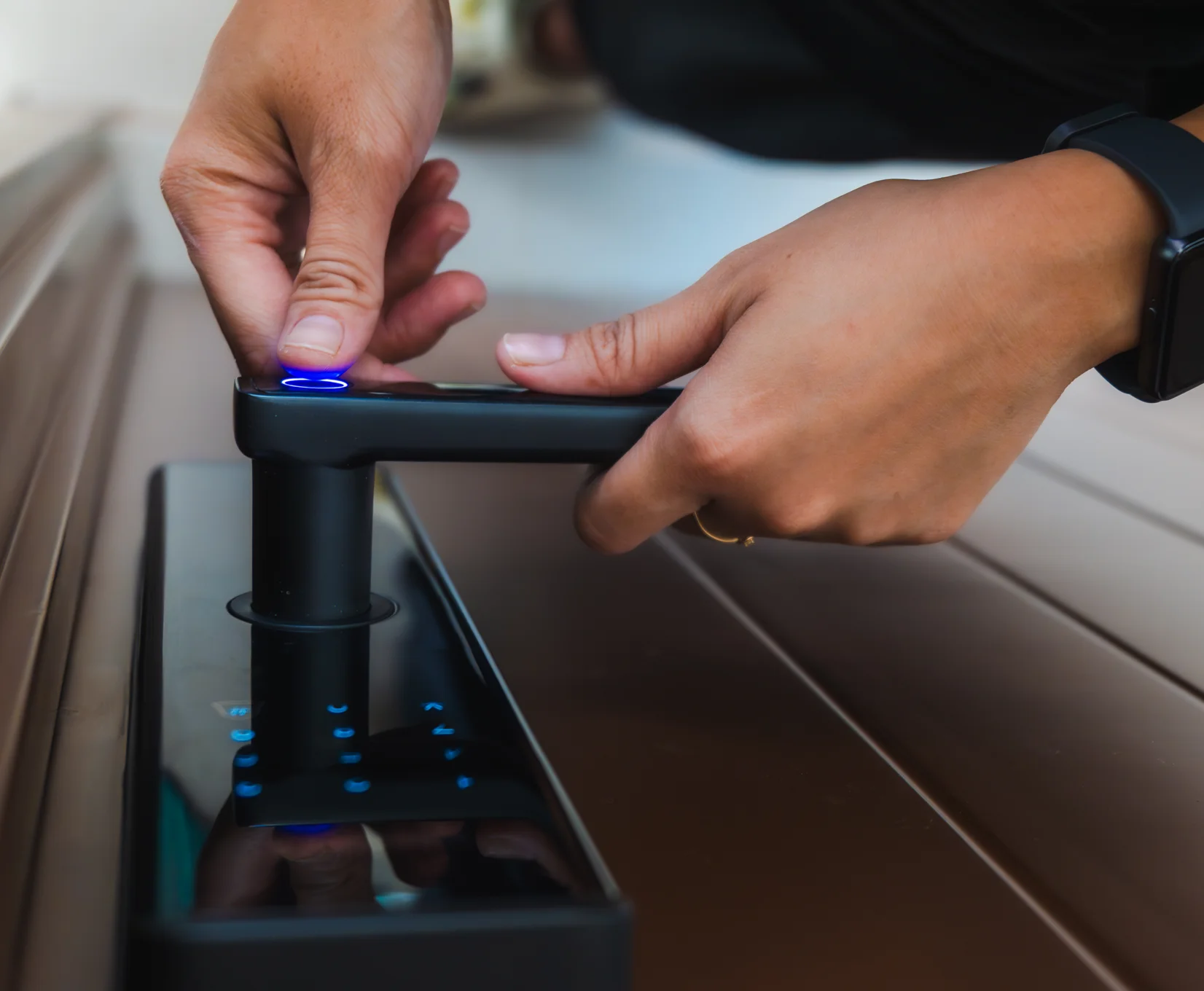
Opportunities for Locksmiths – If Handled the Right Way
Anyone who thinks smart locks will make traditional locksmiths obsolete probably also thought eBooks would kill off bookstores. The truth is: the business is evolving and adapting — but it’s not going anywhere.
What locksmiths can offer today:
• Consultation on smart lock selection and legal compliance
• Installation and setup of smart systems
• Emergency services for digital locks as well
• Maintenance, firmware updates, and troubleshooting
You could say: locksmiths are becoming lock-whisperers.
Risks: Technology Is Still Technology – No Matter How Smart It Sounds
Where there’s light, there’s shadow — and that brings us to the second part: the risks. And there are quite a few:
• Power outage = locked out. Especially common in older buildings with questionable wiring.
• App crash = no access. Especially if the update hits on a Monday (which apparently is a law of nature 😉).
• Data breach = strangers get access. Many real-world cases prove that security flaws don’t just happen to others.
Not all smart locks are equally reliable. Cheap solutions from discount stores may look sleek, but they’re often digital roulette machines with a doorknob.
Here are some external insights on these topics:
• HLC Software Smart Locks
• E+T: Smart Home Solutions
A Real-World Example: When the App Says “Nope”
In a residential complex (unnamed here for privacy reasons), a situation unfolded that has likely happened before — and probably won’t be the last of its kind. A new smart lock had been installed on the basement entrance. Everything worked fine — until an update disabled NFC access. Residents were left literally standing in the rain with their laundry baskets while the manufacturer’s support line offered a familiar message: “We’re working on it.”
What saved the day? An old-school key — the smart lock was a retrofit model that still included a traditional cylinder. Luckily, the building manager had kept it. And the takeaway? Digital is great — but sometimes, analog is… simply faster.
Conclusion: The Future Is Hybrid – And That’s a Good Thing
Smart locks are changing the game — but they’re not ending it. For locksmiths around the world, this doesn’t mean less work — just new types of work. Those who embrace the technology, evolve their services, and don’t shy away from digital logs have nothing to fear when it comes to the future of their profession.
At Multipick, we see smart locks as a modern and exciting advancement in security technology. They open new possibilities, come with new demands — and raise the bar for precision and reliability. As a company that lives innovation and takes technology seriously, we welcome this progress.
And one final thought: Behind every smart display is still a lock cylinder. And wherever there’s a lock cylinder, our tools are never far behind. The last word? It still belongs to the one who gets the door open — whether with an app or a pick.
Sources
Country/Region
Source (public & independent)
Germany - Bundesnetzagentur (Federal Network Agency)
EU-wide - EDPB – European Data Protection Board
USA - FTC – Federal Trade Commission
Privacy & Smart Homes - Haufe Immobilien Technical Risks
Netzwerk-Guides.de
FAQ – Everything You Need to Know.
1. Can Locksmiths Still Make Money with Smart Locks?
Yes – more than ever. The demand is shifting from traditional emergency unlocking to consulting, installation, and system maintenance. Customers want reliable technology, not DIY fixes. Those who demonstrate expertise here become highly sought-after partners.
2. Which Smart Locks Are Suitable for Professional Use?
Stay away from cheap models without verifiable certifications. For businesses, property managers, or sensitive access points, we recommend systems with: – Certified encryption (e.g., AES-256)
– GDPR-compliant logging
– Updates via secure servers
– A mechanical emergency override Choose established providers with a solid support structure in Europe.
3. What Should Locksmiths Keep in Mind When Opening Smart Locks?
Documentation is essential. With digital systems, it’s not just about the owner’s consent — you also need to know: Who is currently registered as the admin? Is the app locked or abandoned? Always get written authorization — ideally including a log or access summary.
4. Are There Training Programs for Working with Smart Locks?
Yes. Manufacturers like Nuki, SimonsVoss, or Danalock offer technical training — often for free or as webinars. Some security academies also run hands-on workshops. Pro tip: Combine training with a reseller partnership — it strengthens your position with clients.
5. What About Liability in Case of Malfunctions?
It’s a complex issue. If you install or configure a smart lock, you could be held liable for proven errors — especially if data protection, access rights, or security functions are compromised. Have your installation and handover confirmed in writing. Use checklists for each job.
6. How Can You Tell If a Smart Lock Is Vulnerable to Tampering?
Technical weaknesses aren’t visible to the naked eye. Penetration tests, online databases (like CVE Details), or expert portals such as heise.de are helpful here. A good rule of thumb: If a lock doesn’t receive regular security updates, it shouldn’t be recommended — and is probably better replaced.
7. How Do Insurance Companies View Smart Locks?
Many insurers require detailed documentation when smart access systems are in use. Often, they’re only considered equivalent to mechanical locks if they are VdS-certified. Check with the client whether their insurer has specific requirements — such as mandatory combination with a mechanical lock.
8. Can Locksmiths Sell Their Own Smart Lock Products?
Absolutely. By partnering with one or more manufacturers, locksmiths can become certified dealers or installation partners. It’s a win-win: customers get both technology and service from one source — and you gain recurring revenue from maintenance and updates.
9. What If Customers Buy Smart Locks Online and Then Ask for Help?
Don’t panic — see it as an opportunity. Offer a “bring-your-own-lock” service: for a flat fee, you inspect, install, and configure it. Many customers underestimate the complexity and are glad when a pro steps in. Important: be transparent about pricing and clearly define your liability for imported products.
10. How Can You Build Trust with Customers – Even with Digital Technology?
Show your expertise, but stay approachable. Customers trust people, not brands. An honest word about security limitations, real-life scenarios, and hybrid solutions builds credibility. And if you recommend keeping a mechanical backup cylinder — even better. Technology is great, but the human factor remains the key to real security.
About the Author
Lars Buchwald has been an integral part of the Multipick team since 2006, where he dedicates his passion and expertise to marketing and graphics. As a trained graphic designer and copywriter, he brings a wealth of experience and creativity to his work, which enables him to convey the messages of the ingenious tools in an appealing and convincing way. With a keen sense for the needs of the target group, he steers Multipick's marketing fortunes. His commitment is characterized by a high degree of sensitivity and the right richer at the right time.
As a native of Bonn, Lars not only has close ties to the region, but has also firmly integrated his passion for marketing spear tools into his professional work. His attachment to the city is reflected in his work and gives his marketing campaigns an authentic, Bonn touch.
Related Articles
Now New - Multipick Seminars
Professional door opening seminars - training for fire brigades, locksmiths and caretakers.
About Multipick
Multipick was established here in Bonn in 1997 and has had its headquarters and production facilities here on the Rhine ever since.
Why should we leave here? Anyone who has been here before will agree that it is a very beautiful place and that the people are ‘typically Rhineland’, open-minded and friendly. From an early stage, we began to occupy ourselves with a wide variety of entry tools. We tried out lock snappers and core extractors such as the Bell and gathered a wealth of experience with a wide variety of tools. Whether it was a lock pick set or special tools for fire brigades and locksmiths, in the end the door or window had to be opened. In line with the motto, you got the problem and we got the solution.
Many tools, irrespective of hobby or professional, are dispatched from our warehouse to destinations throughout the world.
Opening tool kits for caretakers and locksmiths, pick sets and lock picking accessories for Locksport enthusiasts and Hobbs hooks for specialists to unlock locked safes. There are thousands of different ways to deploy our specialised tools. Our TFG latch plates and key turners allow a closed door to be reopened. QA Pro 2 and our V-Pro core pulling screws can be used to open a locked door. We also offer milling burrs and drill bits for those situations where there really is no other way. Many useful aids such as MICA opening cards, wedges, door latch spatulas, door handle catches and spiral openers, which are all useful tools to help you get the job done. But even if things get a bit complicated, you are in good hands with us. Products such as the Kronos and Artemis electric picks are our top highlights. Anyone who likes to open dimple locks or disc locks will be delighted with the ARES system. For opening windows, we offer you a range of top products from Kipp-Blitz. Favoured by emergency services such as the fire brigade, THW (Federal Agency for Technical Relief) and police. Many of our tools are manufactured in-house. This gives us the liberty to manufacture quickly and in a customer-orientated manner. No lengthy supply chains and subcontractor dependencies. This has a number of advantages both for you and, of course, for our environment. One big advantage is that you get everything from a single source, enabling us to offer you consistent quality. This is also our promise to you, all from a single source, Made in Germany, Made in Bonn - promised.




































